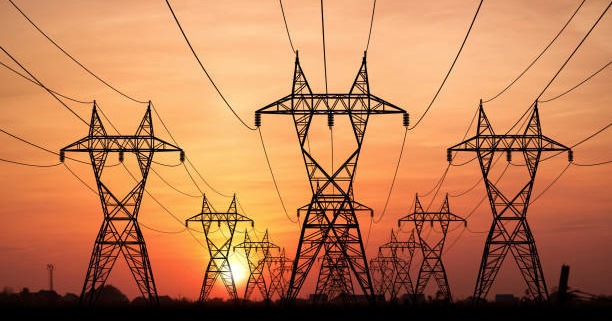Who’s To Blame For High Energy Costs? Finger Pointing All Around
Sources: U.S. Energy Information Administration (EIA): Connecticut State Assembly’s Office of Research; Edmund H. Mahony, Hartford Courant
Nearly a third of Connecticut residents said they couldn’t afford to pay a utility bill over the past year, according to a recent report based on data collected by U.S. authorities. That might be because Connecticut has the highest monthly electric bills in the nation.
The U.S. Energy Information Administration (EIA) found that 34% of people nationwide have skipped purchasing house necessities like food or medicine to cover a utility bill, according to the report.
EIA is a principal agency of the U.S. Federal Statistical System responsible for collecting, analyzing, and disseminating energy information to promote sound policymaking, efficient markets, and public understanding of energy and its interaction with the economy and the environment. EIA programs cover data on coal, petroleum, natural gas, electric, renewable and nuclear energy. EIA is part of the U.S. Department of Energy
Connecticut ranked second in the percentage of residents (30%) who said they’ve struggled to pay a utility bill, trailing only Mississippi, where 33% reported difficulties,
Why? According to the report, the Nutmeg State has the highest utility costs in the nation. The average utility bill in Connecticut from August 2023 to August 2024 was $254.47, according to EIA data. That’s 37% higher than the national average of $185.59, which is up more than 25% from the previous year’s figure of $180.
According to the Connecticut State Assembly’s Office of Research, most of the average electric bill goes toward delivering energy to homes — a cost categorized as the supply charge. Connecticut does not produce most of the energy residents consume, and much of it comes from areas outside the Northeast.
Approximate 60% of our energy comes from natural gas, which is susceptible to rate fluctuations as consumption increases. Connecticut has no natural deposit of natural gas.
Nuclear power made up about 33% of our energy consumed and the rest came from renewable sources such as sun, wind, and hydroelectric, per the EIA.
Federal and state regulations, impacts of climate change on temperatures, disruptions in the global supply chain — such as the war in Ukraine — and inflation all play a major role in why monthly utility bills continue to rise, according to state researchers and trade groups.
Two Connecticut gas companies are challenging cuts to their revenues by state regulators a month ago that triggered a series of credit rating reductions across the state utility industry.
Avangrid subsidiaries Connecticut Natural Gas and Southern Connecticut Gas are suing to overturn a November decision by the Public Utility Control Authority that cut revenues to levels substantially below what the companies were authorized to collect from customers the last time PURA set their rates six and seven years ago.
In their suits, the two companies allege an array of regulatory errors on the part of PURA that collectively accuse the regulators of departing from established law in order to deny them the ability to recover through customer billing the tens of millions of dollars they borrow to cover operating expenses.
“Instead of applying the statutory framework and meeting the obligations set forth therein, PURA purports to invest itself with freewheeling, unbounded discretion and then exercises that arbitrary discretion with the singular, pre-determined purpose of accomplishing a rate reduction for customers,” the SCG suit claims. “The cumulative effect of these unwarranted cuts is a destructive decision that imperils the company’s financial condition. “For the second time in less than a week, a credit agency has lowered its rating on a Connecticut utility, saying this time that a series of inconsistent and adverse rate decisions by the state Public Utility Regulatory Authority has undermined Eversource’s financial position.
The reduction by S&P Global of the Eversource credit score from A- to BBB+ means its cost of borrowing to fund operations will increase not only in Connecticut, but across the remainder of its operating territory in Massachusetts and New Hampshire, where it has electric, gas and water subsidiaries.
S&P also cut its credit ratings for Avangrid’s Connecticut subsidiaries Connecticut Natural Gas and Southern Connecticut Gas for the same reasons.
“In general, we expect utilities to operate in a regulatory jurisdiction that is supportive of their credit quality by allowing for the full recovery of their operating and capital costs in a timely manner,” S&P said in its notice, released late Monday. “We also expect the regulatory jurisdiction to provide a consistent and predictable regulatory framework that result in cash flow stability. Given the current trend in Connecticut, we now expect that the PURA will continue to order less-than-credit supportive rate case orders over the longer-term.”
The Avangrid and Eversource downgrades were expected by the utility industry, which has been critical for months of PURA decision making under the leadership of Gov. Ned Lamont’s chairperson, Marissa Gillett. Eversource Vice President Douglas Horton blasted PURA in a statement released after S&P issued its rate cut.
“This latest ratings action is independent confirmation that the Connecticut regulatory environment is harming the ability of electric, water and gas companies to hold financing costs down for customers, particularly residents and businesses who are feeling the burden of high energy costs,” Horton said. “Credit ratings are a report card on the financial health of a state’s business environment, and this new ratings action shows that not only is Connecticut failing that test, there is now a ripple effect for our customers in Massachusetts and New Hampshire as well. The negative impact of these credit rating downgrades will be long-lasting, costing customers more money for decades, extending far beyond any single rate cycle,” Horton said.
In addition to downgrading parent company Eversource, S&P lowered its rating for Connecticut subsidiaries Yankee Gas and Aquarion water two notches, “reflecting our downward assessment of Connecticut’s regulatory construct.” Connecticut electric subsidiary CL&P was lowered one level, as were New Hampshire and Massachusetts subsidiaries NSTAR Electric, PSNH, NSTAR Gas and EGMA by one notch, “reflecting the downgrade of Eversource.”
The Avangrid and Eversource credit downgrades are the most recent of several issued over recent months. All have contributed to an increasingly hostile relationship between the utility industry and PURA, which has almost total control over how the utilities spend money, how much they spend and how much they can earn to cover costs and deliver profit to investors.
Marissa Gillett, Chairman of Connecticut’s Public Utilities Regulatory Authority (PURA) has said that her position as a quasi-judicial regulator prevents her from discussing matters before PURA. But her supporters, including Lamont and influential legislators, have backed PURA decisions, claiming utilities have profited excessively and spent irresponsibly in the past under lax regulatory enforcement.
The utilities argue that PURA, under Gillett, has acted more like an advocacy than a regulatory agency. They accuse PURA of issuing arbitrary and contradictory decisions that have cut rates and contributed to losses by preventing the utilities from recovering what they spend to maintain and upgrade networks.
The downgrade last week of Avangrid followed a PURA decision a month earlier that cut revenues for the two Avangrid gas companies to levels below what they were authorized to collect through rates six and seven years ago. PURA cut revenue for CNG by $24 million or more than 5 percent, and $11 million, or approximately 2.5 percent, for SCG. CNG had sought a $19.7 million increase and SCG wanted an additional $43 million.
State House Republican leader Vincent Candelora accused Democrats of creating a regulatory scheme hostile to the utility industry. “The credit rating downgrades of these utilities is a clear rebuke of the toxic regulatory environment fostered by the Lamont administration and legislative Democrats,” Candelora said. “They ignore the heavy cost associated with their policies and mandates on utilities, while at the same time delaying the recovery of the costs. The ‘we’re fighting for you’ rhetoric from Democrats sounds nice in a news release, but the reality is that their approach on energy and the resulting credit downgrades will discourage innovation, jeopardize reliability, and ultimately burden ratepayers with skyrocketing costs,” Candelora said.
“If these utilities decide to pull out of Connecticut, the state’s energy future grows even bleaker,” Candelora said. “The financial markets, an impartial judge, have made their verdict clear: these policies are unsustainable and will drive our state further into an affordability crisis.”
Consumer Counsel Claire Coleman said the Connecticut regulatory climate is being unfairly blamed for a weakening of Eversource’s financial health and responsibility lies more appropriately with the company’s recent write-off of a more than $1 billion investment in offshore wind.
“The attempt to blame today’s credit ratings downgrade solely on the regulatory environment here in Connecticut obscures the full picture: the capital markets reviewed Eversource’s parent company financial reports, and, in large part as a result of offshore wind losses that cost $2.6 billion from the company’s coffers, aligned the company’s credit rating with the company’s financial reality,” Coleman said. “This downgrade was made at the parent company level, with several Eversource operating distribution entities across multiple states – including but not limited to CL&P – also impacted. While credit downgrades are not something we’d ever seek or celebrate, the impact on customers here in Connecticut are far more remote and tangential than has been described.”
Eversource officials said the offshore wind investment is financially distinct from the company’s regulated utility businesses and pointed out that S&P does not assert in its credit review that the wind investment was a factor in the downgrade.
A Lamont spokeswoman said the governor is reviewing the ratings reports and may have more to say after arranging private meetings in coming days with utility analysts.
State Sen. Norm Needleman, the Essex Democrat who chairs the Legislature’s Energy & Technology Committee, said he too is evaluating ratings reports and rate decisions “with an eye toward what we will do during the next legislative session.”



